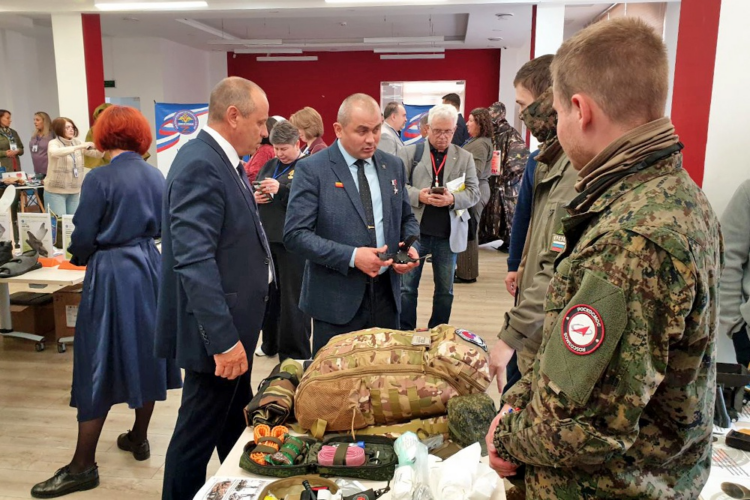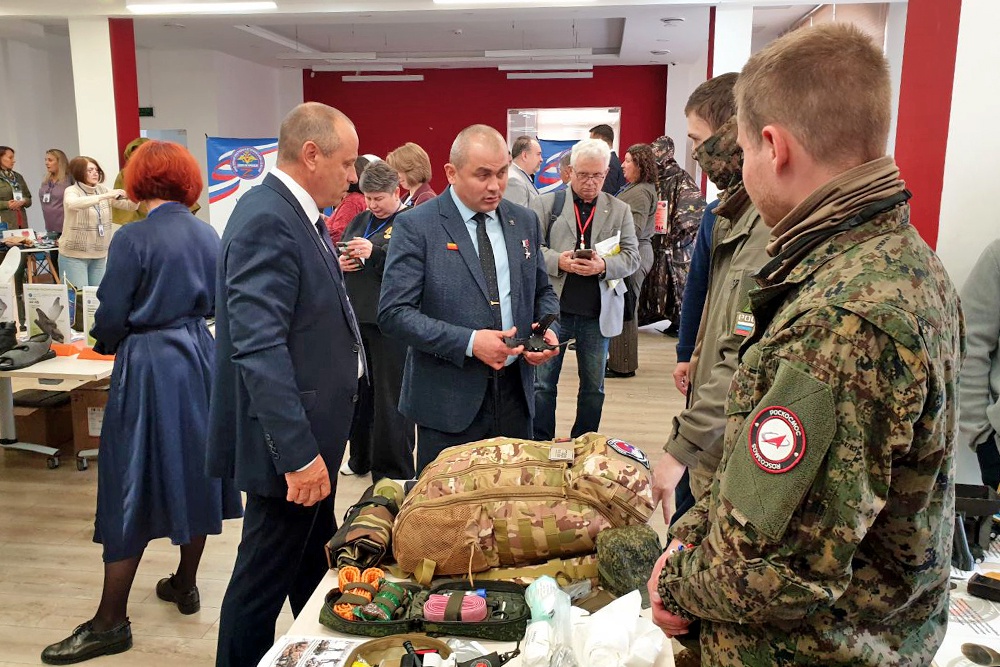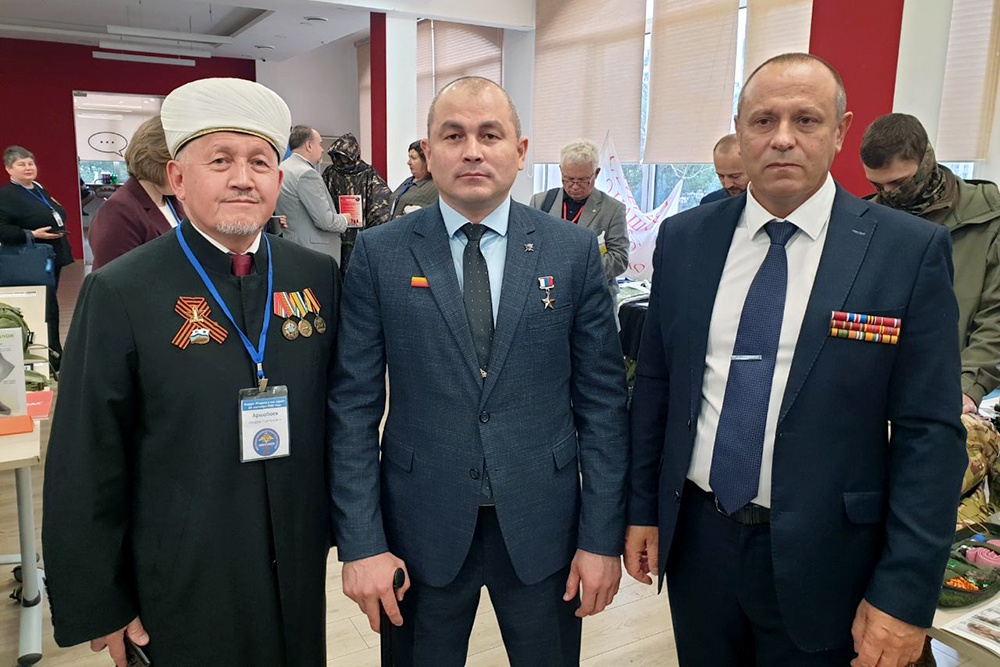Volunteer Forum: There are many problems, but we only have one homeland, and we don't abandon our own.
Published: by .

On this day, doctors, psychologists, volunteers, foundation volunteers, mothers and wives of fallen soldiers, and veterans of the Central Military District gathered here – those who help the front, the wounded in hospitals, collect money, things, clothing, medicine, and form entire humanitarian columns that go to the front.
"Yes, we still have a lot of work ahead of us," Anna Kuznetsova, Deputy Speaker of the State Duma of the Russian Federation and Chair of the Board of Trustees of the "We Don't Abandon Our Own" foundation, told the audience. "If you go to any hospital today, here in Moscow or in other regions of Russia, in Donbas and Novorossiya, you'll see blue circles with the St. George's ribbon and the inscription 'We Don't Abandon Our Own.' Our foundation works everywhere, helping hospitals. Quietly and calmly, without concern for PR."
Indeed, very little is known about this foundation's activities, yet its scope is colossal. Foundation Director Sergei Zabegaev has only shared a few figures. This year alone, over 500 cubic meters of cargo were sent to the front. It's difficult to say how much this translates into monetary value. For example, how can one calculate the cost of the camouflage nets that craftswomen spend sleepless nights weaving? Furthermore, in recent months, Niva vehicles, motorcycles, drone detectors, communication equipment, chainsaws, diesel generators, 500 tons of bottled drinking water, and much more have been donned to the front lines. Often, the foundation's volunteers, fragile, heroic women wearing bulletproof vests, deliver humanitarian aid to the frontline zone in their personal vehicles, despite the risks.

Behind the scenes at the forum. Photo: Andrey Polynsky.
But perhaps the most important assistance the foundation provides is medical: nursing and psychological support, as well as medical rehabilitation and treatment. The volunteers' work reaches their recipients locally, as "We Don't Abandon Our Own" has branches in many regions of the country. And I didn't misspeak—it's true volunteers, as virtually all specialists work voluntarily, meaning they work for free. Over the past year, the foundation's medical department has received applications from more than 700 patients, treating and rehabilitating them. These include not only discharged service members but also active military personnel.
Assistance to the disabled is a special concern. This year alone, 1,294 mechanical wheelchairs, 240 electric wheelchairs, and 5,489 pairs of crutches were provided to the wounded in hospitals, totaling over 36 million rubles.
Sergey Zabegaev also noted that everything that has been done and everything that has been donated to the front and hospitals was collected through collaboration with other volunteer groups and foundations whose representatives are participating in the forum. These include the "Defenders of the Fatherland" foundation, "Everything for Victory," the All-Russia People's Front (ONF), the "House of the Deaf-Blind," "Doctors, You Are Not Alone," and others.
"But I also want to talk about the problems," noted Sergei Zabegaev. "Unfortunately, our foundation is, for some reason, banned from operating in Moscow's medical institutions under the Moscow Department of Health. Moreover, where our home care nurses and other groups—"Relatives and Beloved," "Sisters of Mercy"—used to work, they were all removed from the hospitals and clinics for one simple reason: an outsourcing company was brought in, staffed primarily by people hired from neighboring countries. And it's unclear why our own, who provided free care, are worse off than the outsiders who do the work for money."

Imam Marat Arshabaev, Hero of Russia Rustam Saifullin and Sergey Zabegaev. Photo: Andrey Polynsky
Anna Krasnopolskaya, head of the organization "Doctors, You Are Not Alone," spoke about the problematic issues of frontline medicine.
"These issues are so important that it's time to practically grant them the status of a national project," she believes, highlighting several pain points in this area: preventing mortality at the pre-hospital stage (equipping and developing the evacuation service for the wounded), first aid kits, medical bags and backpacks, and inadequate training of personnel in tactical medicine.
In other words, the volunteers talked not only about their achievements but also about pressing issues. They discussed the bureaucracy and formalism that hinder their work, and outdated regulations that need to be changed. They discussed the interaction between government agencies and volunteer organizations. They discussed the problems of transporting and transporting the seriously injured. They raised questions about legal support—how to protect against imposed paid services and scams, and much more.
"When I was in the hospital after my last injury, the guys from the 'We Don't Abandon Our Own' foundation—they were just starting their work—came to see me," recalls Hero of Russia Rustam Saifullin, deputy head of the Tyumen Higher Military Engineering Command School, who lost a leg at the front. "At a time like that, you don't need medals or ranks. In short, you find yourself in a pit of nothingness and confusion: what will happen next? And then these people throw you a rope into your pit. And using this rope, you begin to climb out of this pit. And for this, on behalf of myself and many of my other comrades, I want to express a special thank you from the commander."
Comments